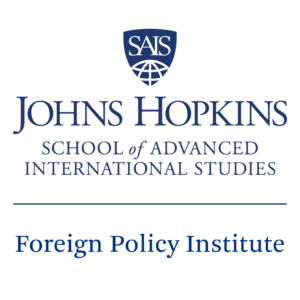The New Silk Road Weekly Saudi Arabia Chronicle
A compendium of the key numbers, quotes, and stories reflecting the economy of Saudi Arabia, curated from global and domestic news sources.
Sources: News Agencies, Financial Times, Bloomberg, CNBC, Reuters, Arab News, Saudi Gazette, The National
Key Numbers
$100 Billion+
Demand for Saudi Aramco’s inaugural international bond has skyrocketed to some $100 billion by mid-Tuesday, according to news reports. This represents an oversubscription of ten times the original bond offering, reflecting intense international investor interest in the world’s largest oil company.
1.8%
The IMF forecast for Saudi Arabia’s economic growth in 2019, announced in the latest World Economic Outlook. This marks a downward revision of its previous forecast of 2.4%, in line with a broader global downward revision in growth.
$71.27
The international benchmark Brent crude futures price as of Tuesday, April 8. This marks the highest Brent price since November 2018.
$111 Billion
Saudi Aramco’s net income for 2018.
12.2 Million bpd
US Crude oil production in March, a global record. Additionally, the US exported more than 3 million barrels per day, a US record. The U.S has increasingly become a competitor in global oil markets and new US shale discoveries exert downward pressure on global oil prices.
$69.1 Billion
The amount Saudi Aramco agreed to pay to buy a 70% stake in state petrochemicals firm Saudi Basic Industries Corporation (SABIC) from Saudi Arabia’s Public Investment Fund (PIF).
SG 33 and SG 34
The new flight listing for the daily SpiceJet flight from Hyderabad to Jeddah (33) and Jeddah to Hyderabad (34), marking the first Indian budget carrier flying direct to Saudi Arabia. On April 20, SpiceJet will add a new daily flight between Jeddah and Kozhikode.
56.8
Saudi Arabia’s non-oil private sector witnessed strong growth in March as evidenced by a high reading on a monthly purchasing manager’s index compiled by Emirates NBD Bank. The Dubai-based lender’s Saudi Arabia Purchasing Managers’ Index – a reflection of operating conditions in the non-oil private sector economy – climbed to 56.8 in March. A reading above 50 shows expansion, while below 50 indicates contraction. Emirates NBD said the current figure was the highest since December 2017
Quotable Notable
On reports that Saudi Arabia would abandon the dollar in oil sales
“Recent reports claiming that Saudi Arabia is threatening to sell its oil in currencies other than the dollar are inaccurate and do not reflect Saudi Arabia’s position on the matter.”
“The Kingdom has been trading its oil in dollars for decades and that has served well its financing and monetary needs. Furthermore, the Kingdom remains committed to be a stabilizing force to energy markets and does not want its key priority to be out at risk, including changes to the financial terms of oil trading relationships around the world.” Khalid Al-Falih, Minister of Energy, Saudi Arabia (Editor’s note: The rumors began to circulate as the U.S Congress debates “NOPEC” legislation targeting the global oil grouping led by Saudi Arabia)
UAE Energy Minister on oil sales in non-dollar terms
“The trading in the US dollar is something that you don’t change overnight. I think that [has been] a norm in the industry for years and years so let’s not jump into some of those ideas … Opec did not claim that they will change the currency in trading.” UAE Minister of Energy and Industry Suhail Al Mazrouei speaking on the sidelines of the Middle East Petroleum & Gas Conference (MPGC) in Dubai.
On Saudi Arabia’s strong PMI reading
“The average PMI reading for the first quarter of 2019 was 56.5, indicating the strongest quarterly expansion in the non-oil private sector since the fourth quarter 2017.” Khatija Haque, head of Mena research at Emirates NBD.
Global Media on the Saudi Aramco Bond Sale
Bloomberg
The Aramco deal is one of the most hotly anticipated debt deals of the year, marking the first time the Saudi oil giant has tapped the international bond market, reports Bloomberg. When Qatar, a rival Middle East nation, sold $12 billion in bonds earlier this year, it got a record $50 billion in orders, evidence of investor appetite for debt of rich, oil-producing nations.
The deal is largely seen as Plan B to raise money for the country’s economic agenda after the initial public offering of Aramco, slated for 2018, was postponed until at least 2021. In effect, Saudi Crown Prince Mohammed bin Salman is using the company’s pristine balance sheet to finance his ambitions.
CNBC
Aramco, the world’s top oil producer, earlier this month received an “A+” rating from Fitch and an “A1″ rating from Moody’s in its first ever credit ratings, following 2018 earnings that dwarfed those of international oil majors, reports CNBC.
Saudi Arabia has already seen formidable success in its recent tapping of the bond market: It issued $7.5 billion in sovereign bonds in January which drew an impressive $27 billion in orders. Saudi Arabia has “A1” and “A+” ratings from agencies Moody’s and Fitch, respectively, a sign of reliability and low risk for investors.
The Financial Times
Investors have been lured in by the disclosure of hefty profits for the oil company, backed by a high, “single-A” credit rating, the FT reports.
Aramco has told investors that credit rating agency Moody’s would have given it a top-notch triple-A credit rating, if it was not for the close links to the Saudi state. Saudi Aramco provided the Saudi government with 63 per cent of its revenues in 2017 but the government still runs a deficit, and some investors fear further cash could be diverted away from the company, to the detriment of bondholders.
“It is a rare issuer and if you look at the pure credit of the issuer it is extremely attractive,” said Tim Jagger, head of emerging-market debt at Columbia Threadneedle. “But the fate of this company is inextricably tied to the fate of the sovereign and we know the sovereign is running a large fiscal deficit.”
The oil company has been meeting fund managers behind the scenes for several months to lay the groundwork for this debut bond sale. It even enlisted the help of veteran investor Mohamed El-Erian, chief economic adviser at Allianz and a former chief executive of bond giant Pimco, to consult on “technical aspects” of the $10bn offering.


